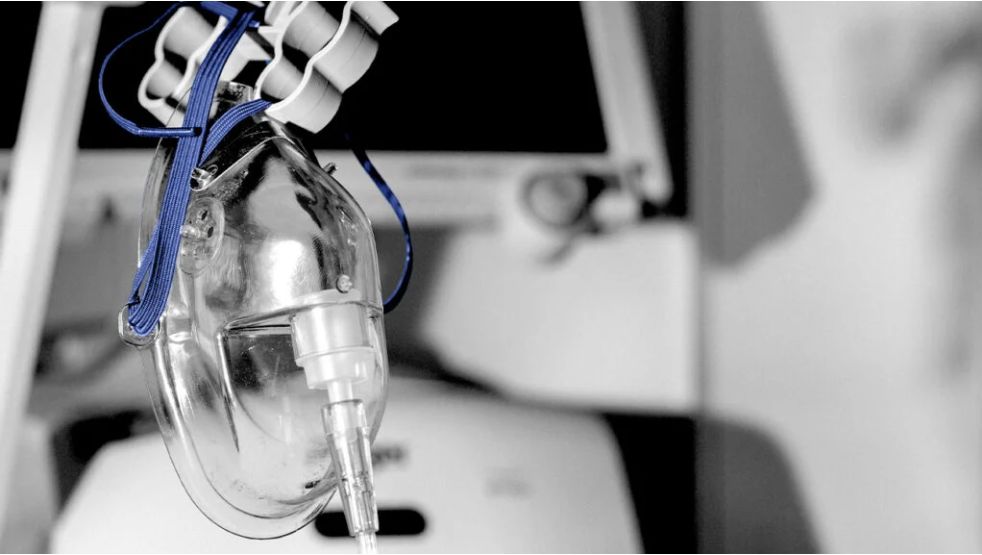
A recent study explored the effects of hyperbaric oxygen therapy on the heart function of individuals experiencing long COVID, which refers to various health issues that persist or recur after SARS-CoV-2 infection.
These problems can include abnormal heart rhythms and an increased risk of cardiovascular dysfunction. The researchers found that inhaling highly pressurized, pure oxygen may aid in improving the heart's contractions in long COVID patients.
The study was led by Professor Marina Leitman from the Sackler School of Medicine at Tel Aviv University and Shamir Medical Center in Israel. Although the findings were presented at a conference in May 2023 hosted by the European Society of Cardiology, they have not yet undergone peer review.
Long COVID and heart concerns
Long COVID, which is also referred to as post-COVID syndrome, affects approximately 10-20% of individuals who have had COVID-19. While most people recover fully from the virus, long COVID can be diagnosed when symptoms persist for at least three months after the initial onset of COVID-19 symptoms.
Symptoms of long COVID encompass various health issues, including shortness of breath, cognitive difficulties (referred to as brain fog), depression, and numerous cardiovascular complications. Individuals with long COVID are at an increased risk of developing heart disease, heart failure, and other related conditions.
Even individuals who did not have any previous heart problems or a high risk of cardiovascular disease have experienced these symptoms, as indicated by a study conducted in 2022.
The study’s methods
Dr. Leitman and her partners recruited 60 patients who were experiencing long-term symptoms of COVID-19, even after mild to moderate cases, lasting for at least three months. The group included both hospitalized and non-hospitalized individuals.
To conduct their study, the researchers divided the participants into two groups: one receiving hyperbaric oxygen therapy (HBOT) and the other receiving a simulated procedure (sham). The assignment was done randomly, with an equal number of subjects in each group. Over the course of eight weeks, each person underwent five sessions per week.
The HBOT group received 100% oxygen at a pressure of 2 atmospheres for 90 minutes, with short breaks every 20 minutes. On the other hand, the sham group received 21% oxygen at a pressure of 1 atmosphere for the same duration but without any breaks.
Additionally, all participants underwent echocardiography, a test to assess cardiac function, before the first HBOT session and 1 to 3 weeks after the last session.
At the beginning of the study, 29 out of the 60 participants had an average global longitudinal strain (GLS) value of -17.8%. Among them, 16 were assigned to the HBOT group, while the remaining 13 were in the sham group.
The study’s results
After undergoing the treatments, the intervention group experienced a notable increase in average GLS, reaching -20.2%. Similarly, the sham group also had an increase in average GLS, which reached -19.1%. However, only the former measurement showed a significant difference compared to the initial measurement at the beginning of the study.
Dr. Leitman made an observation that nearly half of the long COVID patients had impaired cardiac function at the start of the study, as indicated by GLS. Nevertheless, all the participants in the study exhibited a normal ejection fraction, which is a standard measurement used to assess the heart's contraction and relaxation abilities during blood pumping.
Dr. Leitman concluded that the ejection fraction alone is not sensitive enough to identify long COVID patients who may have reduced heart function.
The use of oxygen therapy could have potential benefits.
According to Dr. Morgan, the findings of the study suggest a positive trend with hyperbaric oxygen therapy.
However, she advises caution, stating that hyperbaric oxygen therapy is not a universally accepted treatment and requires additional investigation. Additionally, there are concerns about a possible increase in arrhythmias based on some research.
Dr. Leitman and her partners concluded that hyperbaric oxygen therapy can be advantageous for patients with long COVID. She suggests that more research is necessary to identify which patients would benefit the most, but it might be beneficial for all long COVID patients to undergo an assessment of global longitudinal strain and consider hyperbaric oxygen therapy if their heart function is impaired.
Dr. Leitman also expresses the hope that further studies can provide long-term results and assist healthcare professionals in determining the optimal number of hyperbaric oxygen therapy sessions.
Post time: Aug-05-2023

